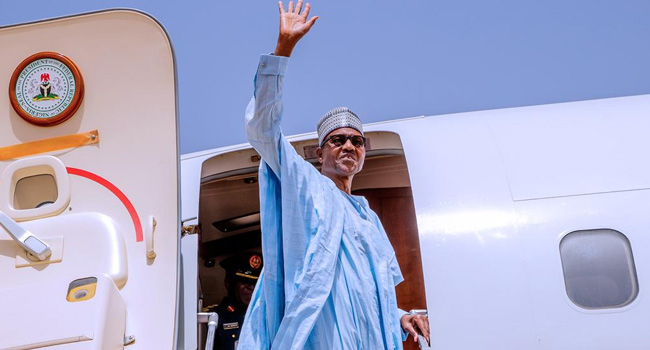By Emeka Alex Duru
Beyond the euphoria of the inauguration of President Muhammadu Buhari for a second term, expectations from Nigerians indicate that he has some tough days ahead. Unlike in his first coming when he had the luxury of time explaining his slow pace of action on the need to study the terrain of governance under a civilian dispensation, such opportunity will not be available this time.
After his election in 2015 when it took him six months to appoint his ministers, Nigerians bore with him, largely on account of his claim that he inherited a system that had been mismanaged by the departing Peoples Democratic Party (PDP) – led Goodluck Jonathan administration. The ready excuse then was that he needed to take his time to go through the books before taking requisite actions. Again, he mounted the seat at time the price of oil – the country’s major source of income, had gone down drastically in the international market. That affected the tempo of governance, considerably. His failing health, equally posed much challenge to the actualisation of his dream of repositioning the country. In the process, not much was actualised especially in the first half of the tenure. Thus, after the initial four years, Nigerians were divided on the score card of the administration. This is especially when juxtaposed on the campaign promises of the President which he anchored on security, tackling corruption, job creation and refloating the economy. While supporters of the President, particularly the officials of the administration score him high on virtually all grounds, critics disagree. Some however, conceded to the government, successes in some areas, while knocking it in other fields.
Getting the right Cabinet
Expectations are therefore high that with benefit of experience, the President, would, this time around, improve on his areas of strength and worked on areas of observed lapses. Among the areas many have noted that worked against cohesion and proper flow of governance, was the quality of ministers he had. Till the last day of his first term, Buhari carried this burden of running with an ineffective cabinet. Aside not having personal knowledge of some of them prior to their appointment, he also trusted them to make use of their judgement in carrying out their duties. But that was not the case, because apart from some of them turning out grossly inefficient in their respective ministries, some saw their positions as opportunity to get even with their perceived opponents at home or party level, thus engaging in avoidable controversies, most of the times. In this instance, the constant clashes between Transport Minister, Rotimi Amaechi with his fellow All Progressives Congress (APC) members in Rivers State and the governor, Nyesom Wike, stood out prominently. On such occasions, the President often found himself in a serious dilemma – not knowing to back or disown his hawkish aides, publicly. But at the end, he had to carry the flaks for running an administration that was seen as not delivering the dividends of democracy to the people. Consequently, as the journey into the second term commences, many have advised the President not to repeat the mistake of the first term in picking people of haughty disposition and fragile temperament as members of his cabinet. In their opinion, rather, Buhari should go for men and women of proven integrity and level headedness, even if they are not card carrying members of his All Progressives Congress (APC). The advice in this direction is considered germane, given that some of his party men and women who could not make it at the election, are already said to craving for appointment as ministers.
Anti-corruption crusade
This is a particular programme of the government that earned it endorsements from Nigerians at home and abroad. Its implementation also attracted controversies on the real agenda of the administration. With the Economic and Financial Crimes Commission (EFCC), reining in politicians suspected to have engaged in underhand activities in the previous dispensation, opinions had run high on the agenda of the administration in curbing corruption.
However, on account of the perceived uneven template in carrying out the exercise there were insinuations that the fight had been waged essentially against people in the opposition PDP. There are also allegations of the fight being waged in ways that ran against rule of law. Some of the looted funds said to have been discovered by EFCC, were also contested by Nigerians on grounds that the Commission had not linked them to any persons or groups. Many thus, dismissed such claims of discoveries as mere publicity stunts by commission.
The demand by Nigerians, now is that the activities of the EFCC should be transparent and not tailored against perceived opponents of the President.
Taming the challenge of insecurity
Before the inauguration of Buhari administration in 2015, the nation had been at the receiving end of Boko Haram insurgency. While it embarked on its murderous onslaughts, the group severally launched a massive assault on the country’s corporate existence.
But with the coming of Buhari and the determination of the administration to engage the terrorists squarely, much gains were recorded. 14 councils in Borno State which had earlier been annexed by the Islamic sect, were regained by the Nigerian troops. In recent time however, the group appears to be regaining its strength and has been launching attacks to several Nigerian communities and villages in the North East. Analysts call for change of strategy in going against the insurgents. While some advocate change in tactics, suggesting such measures as engagement with the group, others recommend an overhaul in the leadership of the security outfits involved in the campaign.
Closely related to the Boko Haram menace, is the scourge of Fulani herdsmen that is making life miserable for Nigerians in the southern and middle belt zones. Incidentally, while they roamed about, killing and maiming their targets, not much was done by the government in reining them in. This is even, when in the 2014 ‘Global Terrorism Index’ the herdsmen were ranked as the fourth deadliest terror group worldwide.
Between Sunday, June 24, 2018 and Tuesday, 26, for instance, the herdsmen had overran three councils in Plateau State, leaving in their trail, blood and sorrow. The violence, which ran for three days, resulted to death toll variously put at between 135 and 200. The Police had however put the estimate of those lost in the mayhem at 86. Elsewhere, the herdsmen had struck in Ukpabi-Nimbo community of Enugu State on Monday, April 25, 2016, leaving in their trail 50 persons dead and properties destroyed.
On Tuesday, April 24, 2018, the Fulani herdsmen took their wicked agenda to a Catholic Church in Benue State, murdering two Priests along with 15 of their parishioners in an early morning worship session. The Priests, Fr. Joseph Gor and Fr. Felix Tyolaha, along with their parishioners were killed in the course of the celebration of the Holy Mass. Earlier in the year, precisely, January 1, 2018, while the World ushered in the New Year, the marauders invaded five local government areas in the state, killing more than 70 people in one fell swoop.
These are few instances of their menace. Incidentally, in all the occasions, security personnel in the affected states, were caught napping.
Revamping the economy
Many are agreed that this is the area the President needs to redouble his efforts in refocusing the country. Despite the claims by his officials, the consensus among Nigerians is that the economy is in poor shape. Among specialized agencies across the world, similar verdict resonates. At a time last year, the World Bank released a damning statistics that saw Nigeria overtaking India in poverty rating. Experts also noted that the country had recorded more job losses and closure of industries in the last four years, in comparison to the previous administration. The challenge is therefore on the President to put back the country on the track in terms of recreating its productive potentials. Incidentally, he had pledged so while unveiling his campaign agenda – Next Level, last year. With the elections and inauguration fever over, it is therefore the time to translate campaign rhetoric to actions, many insist.











